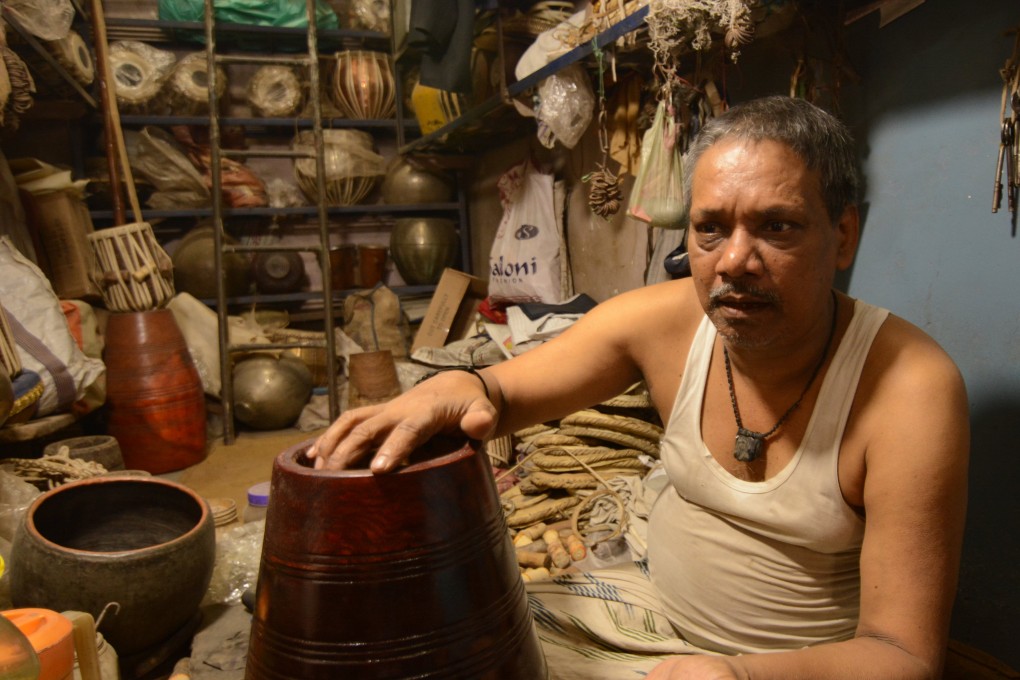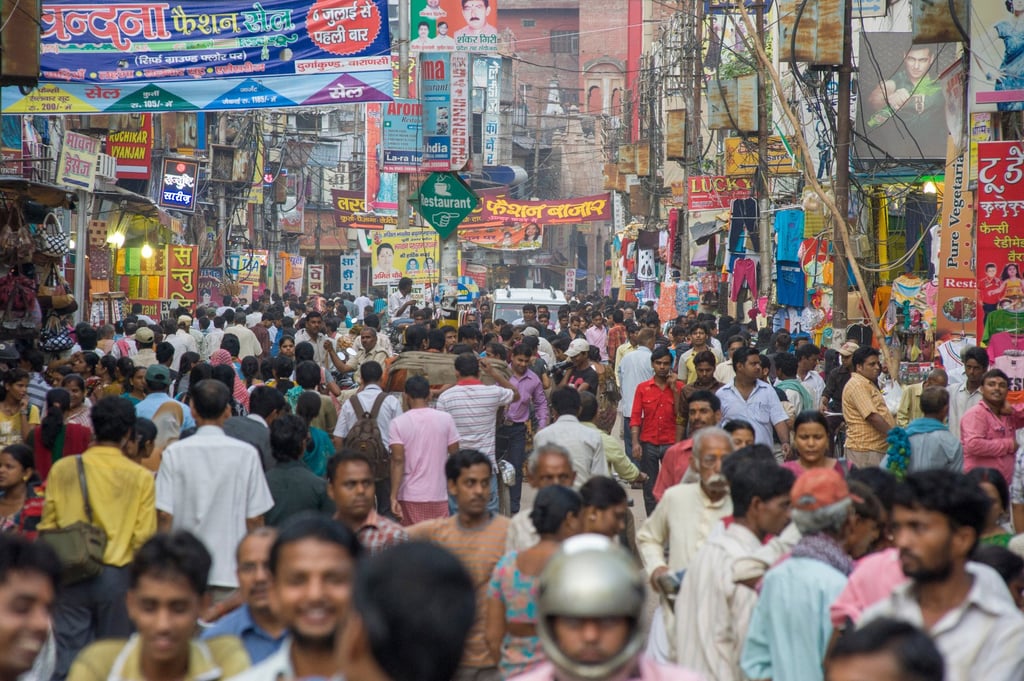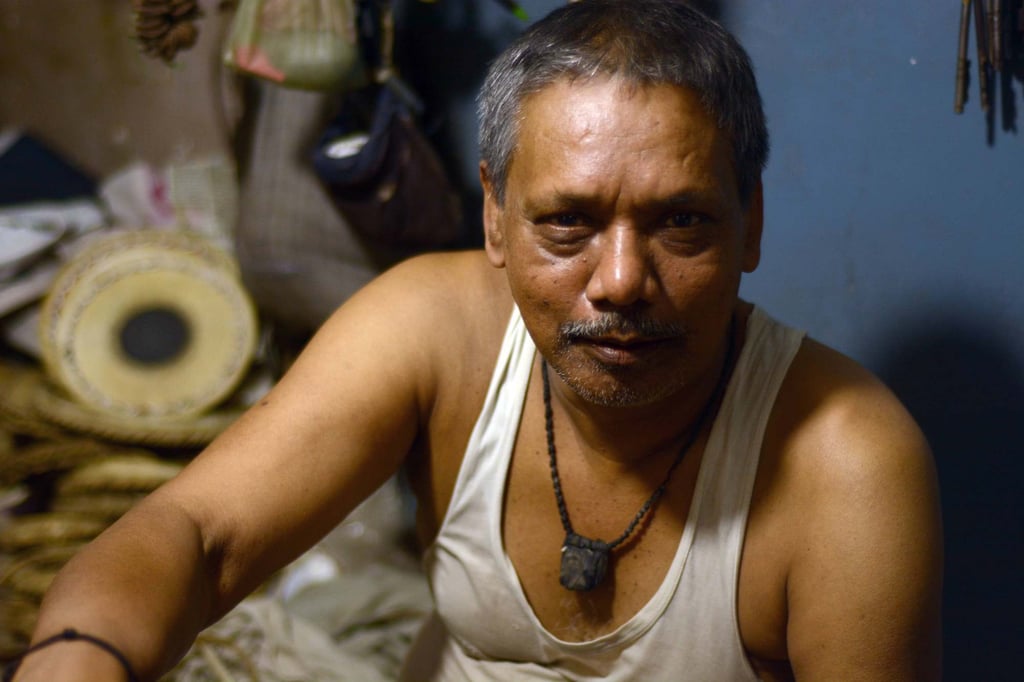As India’s tabla tradition fades, a drum craftsman’s heart still beats for his art
- Mumtaz Ali, 65, son of a master craftsman who made drums for stars including Ravi Shankar, has honed his skills for 45 years and has no plans to stop
- The third-generation tabla expert is among the last of his ilk in a Varanasi market that once housed a thriving industry of instrument makers

At dusk, the narrow lanes of Dal Mandi in downtown Varanasi spring to life. Rows of shops in the northern Indian city offer colourful wares, from the famous Banarasi silk saris, costume jewellery and kitschy toys, to groceries like grains and pulses, to which the area owes its name.
Dal Mandi, which means “wholesale market of pulses” in Hindi, was the city’s granary market and hub of public entertainment around the 17th century. In its heyday, it was a connoisseur’s delight, with courtly performers holding their musical soirées or mehfils every evening, giving it the moniker tawaiefon ke gali, the lane of the courtesans.
The congested streets became home to a growing cottage industry of musical instruments. During the day, the clanking and hammering of brass wires filled the air, as did sounds of scrubbing leather being made into sitars, sarangi (string instruments), or tabla (hand drums or percussion instruments). In the evenings, the melody of these instruments and the silken renditions of courtesans would make Dal Mandi truly atmospheric.

Traditional instrument-makers left, too. Some quit their vocation and took up other jobs far away from creative industries, such as driving taxis. Dal Mandi became a shell of its former self.
Still, some found reason to stay. For Mumtaz Ali, 65, it is the love for his dying craft that keeps him going.
